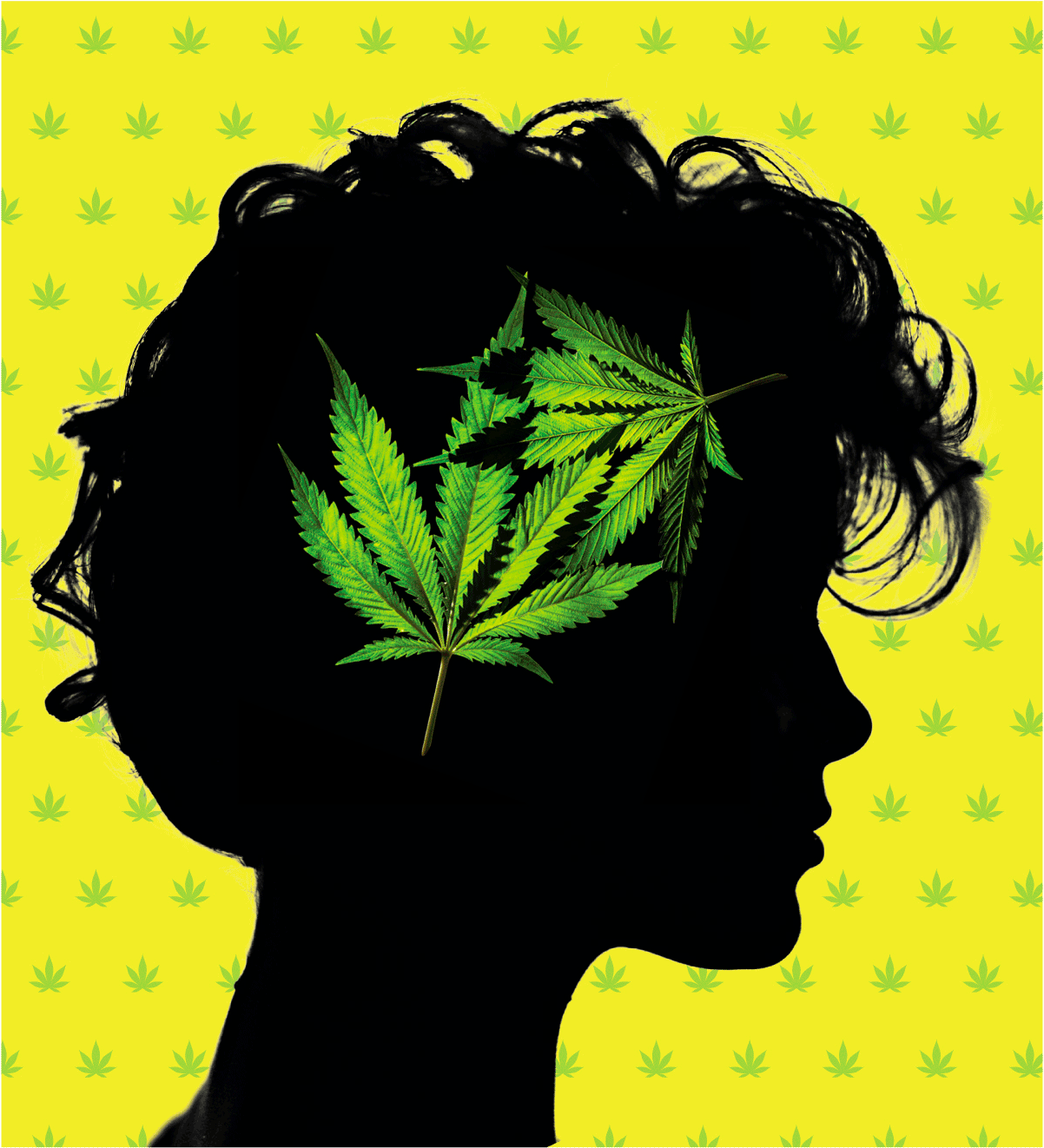Grooming With Care
"Kids are smart and they're watching everything and everyone."
"The conversations should be about authenticity and honesty."
"There is a difference between discretion and hiding. Hiding encourages stigma because it is something that you keep from people. Having discretion is about responsible use."
"It's maybe not that I don't trust my own kids. I keep it [cannabis] locked and away from them so that they understand that it's an adult-use product."
"My job is to be a responsible user and store it [cannabis] responsibly and have these conversations. I want to have a dialogue with my kids about this."
Ashleigh Brown, founder, SheCann
"I just asked myself, 'I know my adult children are smoking it, so why am I the one hiding it?"
"We're all adults here."
Sabine Dolby, 56, Toronto
"There are downsides to [cannabis use], but if we don't talk about it, how are we really going to know?"
April Pride, founder, Van der Pop, cannabis lifestyle, Seattle

In this post-legalization world of cannabis access beyond medical use and into the recreational sphere parents of teens find themselves suddenly faced with the need to discuss the use of pot with their adventurous children, adolescents forever attracted to the exotic and 'forbidden'. It's good strategy. Just as good strategy and very badly needed, as when parents begin to discuss with their children the ins and outs of intimate sexual relations, how babies are born and how best to deal with one's hormonal cravings to experiment and learn first-hand what all the fuss is about.
In the Toronto of recreational marijuana legality, a recent event titled Women & Weed took place, where a number of speakers addressed the audience interested to hear first-hand from those upon whom they look as 'experts' to guide them in their own perplexing search how best to handle the sensitive issue of parent-child discussions revolving around the use of cannabis. Uppermost in mind of these parents is the certain knowledge that young people will and do extend themselves to discover first-hand what's happening.
That, linked to the medical community warning of the deleterious effects of marijuana use for young people whose brains are still developing and who, with the use of pot, can expose themselves to harm, makes the issue of primary importance. At that event, the founder of SheCann, an online portal enabling women in Canada to share their own use of medical cannabis experiences, emphasized the importance she places personally on making these discussions a continuous dialogue.

Ashleigh Brown of SheCann spoke of her own experience with medical cannabis begun in 2016, using it medicinally giving her children the decided impression that pot was a medicine, nothing more. Then she initiated discussions with her 14- and ten-year-old daughters about cannabis used by different people for a host of reasons; not necessarily confined to health. Both she and April Pride stressed the importance of conversations with children, to prepare them for the inevitability of being knowledgeable to a degree about weed they'll come across in future on the street and at parties.
There is a correlation, they stressed, between advising and discussing with children the effects of recreational alcohol, and no less so with cannabis. And one of the critical issues in such discussions is to explain why it is that marijuana is meant to be used only by adults, and until such time as young people join that category of maturity, its use can present a future health danger. Both women explained that they lock their pot away from their children. Despite which they feel that avoidance of conversation about cannabis use creates an aura of stigma, unhelpful in persuading kids to make considered decisions.

They recommend using resources as for example from Canadian Students for Sensible Drug Policy which views problematic drug use as a distinct issue of health, not an issue for the criminal justice system, advocating instead for harm reduction support. Talking to children about why and how people make use of cannabis is a start. Sabine Dolby who uses cannabis by prescription hid it from her children when they were young. Now, aged 24 and 30, she smokes with her children as a regular user and with legalization, feels relieved not to have to hide her use any longer.
The Canadian Centre on Substance Use and Addiction's position is that consuming cannabis on a regular basis during adolescence has the potential to cause loss of concentration and memory, and reduce thinking to incoherence. In a 2015 report, the Centre stated that regular use of cannabis is associated with experiencing psychotic symptoms and the development of schizophrenia, particularly among those with a family history of the condition.
There is a caveat that connection between cannabis use and mental illnesses, particularly acute anxiety, is not clear entirely, requiring additional research. The general consensus remains, however, that the effect of cannabis on not-yet-fully developed brains -- up to age 21 to 25 -- makes it imperative that such discussions do take place.
 |
Labels: Cannabis, Legalization, Medical Marijuana, Recreation, Teens

0 Comments:
Post a Comment
<< Home